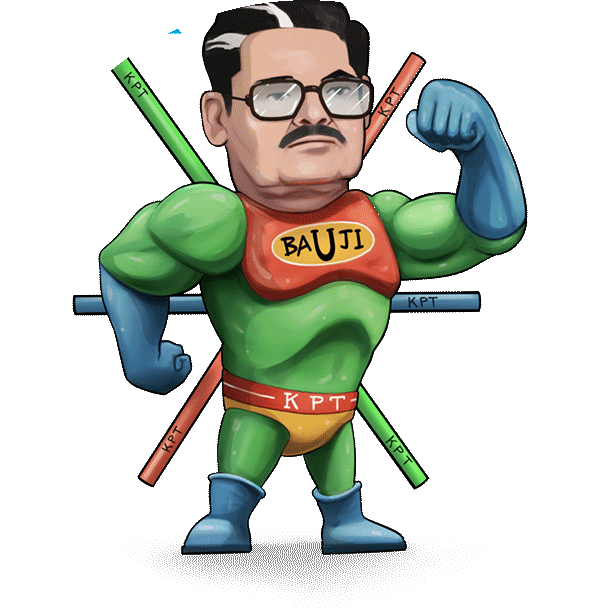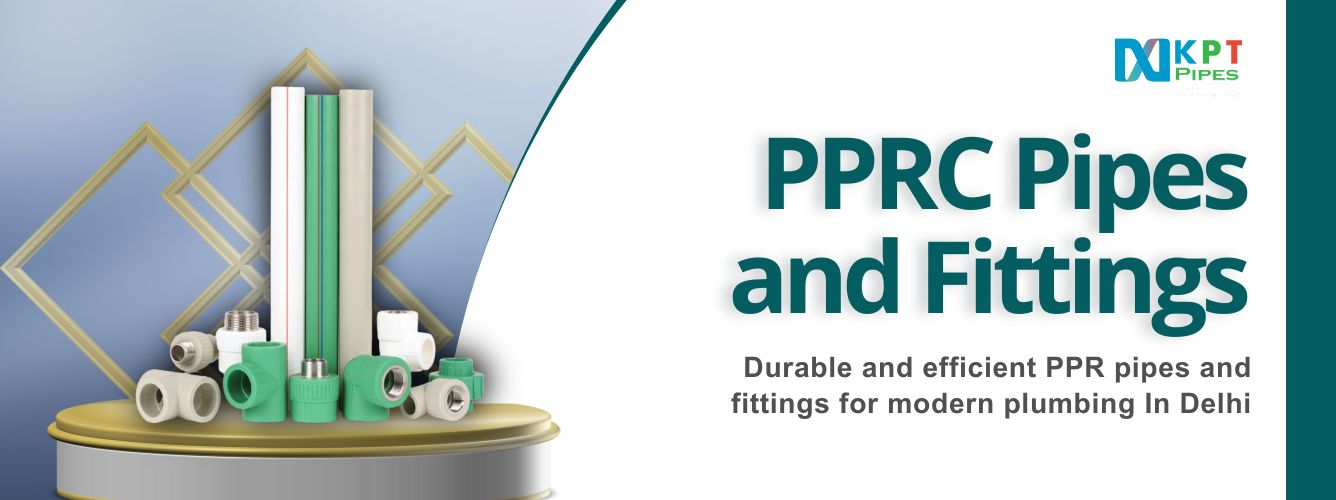Polypropylene Random Copolymer (PPR) pipes are increasingly favored in contemporary plumbing setups because of their outstanding strength, longevity, and resistance to high temperatures and corrosive substances. These pipes are suitable for a broad spectrum of applications, from residential homes to large-scale industrial projects, providing a dependable and durable piping solution. The rising popularity of PPR pipes in Delhi is driven by their affordability and ability to meet the city’s specific environmental and infrastructural challenges.
Table of Contents
ToggleThe Role of PPR Pipes in Modern Plumbing
PPR pipes have significantly advanced the plumbing industry by offering solutions capable of enduring high pressure, elevated temperatures, and exposure to aggressive chemicals. Their versatile nature makes them suitable for various uses, ranging from small household systems to extensive industrial networks. These pipes are inherently resistant to corrosion and require little maintenance, making them both economical and reliable. Additionally, PPR pipes are recyclable, supporting sustainable building practices and helping to preserve the environment.
Addressing Delhi’s Plumbing Challenges with PPR Pipes
Delhi’s climate is characterized by wide temperature variations and periodic high humidity, which can accelerate the deterioration of traditional piping materials like metal or PVC. PPR pipes excel under these circumstances due to their durability and resilience against environmental stressors. This makes them a perfect choice for diverse plumbing needs across the city, whether in residential houses or large industrial complexes.
What Are PPR Pipes?
Constructed from Polypropylene Random Copolymer, PPR pipes are known for their flexibility, toughness, and chemical resistance. They are non-toxic, making them safe for drinking water systems, and they provide consistent performance over time. Their resistance to scaling and corrosion further enhances their suitability for residential, commercial, and industrial plumbing systems.
Types of PPR Pipes Available in Delhi
- Standard PPR Pipes: These lightweight yet sturdy pipes are widely used for everyday plumbing chores in homes, offices, and commercial establishments. They effectively carry hot and cold water, are easy to install, and help reduce labour costs while delivering reliable results.
- Greentherm Pipes: Designed specifically for hot water applications, Greentherm Pipes improve thermal transfer and reduce energy consumption. Their leak-proof design and high-temperature resistance make them ideal for kitchens, bathrooms, and other hot water systems.
- ThermaPlus Pipes: Built to endure extreme temperatures, ThermaPlus Pipes are suitable for demanding industrial environments. They resist thermal expansion and contraction, ensuring consistent performance even under stress.
- Pneumatic Pipes: These pipes are meant for transporting pressurised air in industrial settings, ensuring no leaks and maintaining consistent pressure for machinery operation.
- PPR-AL-PPR (Composite Pipes): Featuring an aluminium core sandwiched between two PPR layers, these pipes combine strength and flexibility. They are perfect for high-pressure systems and can handle temperature variations efficiently.
- PPR-CT Pipes: Specifically made for transporting corrosive chemicals, PPR-CT Pipes are used in industries like manufacturing and pharmaceuticals due to their high chemical resistance.
- Glass Fibre Reinforced PPR Pipes: Reinforced with glass fibres, these pipes offer extra strength and durability, suitable for heavy-duty industrial tasks. They withstand high pressure, impact, and temperature swings, ensuring long-term reliability.
- UV-Resistant PPR Pipes: Designed for outdoor use, these pipes resist UV radiation, making them ideal for irrigation, solar water heating, and other external applications.
Types of PPR Fittings Available in Delhi
- Elbows: Redirect water flow smoothly, maintaining system efficiency and reducing turbulence.
- Tees: Split flow into multiple directions, enabling complex plumbing configurations.
- Couplings: Connect two pipe sections securely, preventing leaks and maintaining system integrity.
- Valves: Control water flow and pressure, essential for system management and emergency shut-offs.
- End Caps: Seal pipe ends to prevent leaks and keep the system pressurized.
- Reducers: Join pipes of different diameters, ensuring smooth water flow and pressure balance.
- Flanges: Facilitate easy assembly and disassembly of piping systems, especially in industrial setups.
- Crosses: Distribute water in four directions, suitable for complex and multi-outlet plumbing arrangements.
- Bushings: Adapt pipe sizes in tight spaces or when flow reduction is needed.
- Adapters: Connect PPR pipes to other materials like copper or PVC, ensuring compatibility across different systems.
- Clamps: Secure pipes to walls or other surfaces, preventing movement or damage, especially in high-traffic or industrial environments.
Applications of PPR Pipes in Delhi
- Residential Plumbing: PPR pipes are perfect for homes in Delhi, offering longevity and resistance to corrosion. They ensure clean, safe water for daily use by handling both hot and cold water with consistent pressure and temperature control.
- Commercial Buildings: In offices, hotels, malls, and other commercial spaces, PPR pipes provide dependable plumbing and HVAC solutions. Their lightweight nature simplifies installation, reduces costs, and their resistance to scaling and rust ensures minimal maintenance.
- Industrial Use: For industries in Delhi, PPR pipes facilitate the safe transport of liquids and gases. Their capacity to endure high temperatures and resist chemical corrosion makes them suitable for demanding industrial environments, supporting sustainable and efficient operations.
- Hospitals: In healthcare facilities, PPR pipes are crucial for delivering uncontaminated water. Their resistance to microbial growth, corrosion, and low maintenance needs make them ideal for hospital plumbing systems.
- Schools: Educational institutions benefit from PPR pipes’ durability and safety, providing a reliable supply of hot and cold water while minimizing repair costs and system downtime.
Key Benefits of PPR Pipes
- Longevity: Designed to last for decades, reducing the frequency of repairs and replacements.
- Corrosion Resistance: Unlike metal pipes, PPR pipes do not rust or corrode, ensuring a steady flow of clean water and lowering maintenance expenses.
- Temperature & Pressure Tolerance: Capable of handling hot and cold water and high-pressure systems, suitable for diverse environments.
- Eco-Friendly: Made from recyclable materials, supporting sustainable construction and reducing environmental impact.
- Cost-Effective: Although initial costs may be higher, their durability and minimal upkeep make PPR pipes a financially wise investment over their lifespan.
Installation of PPR Pipes
Tools Needed:
- Pipe Cutters for precise, clean cuts
- Welding Equipment for secure, leak-proof joints through thermal fusion
Steps to Install:
- Planning: Map out the piping layout to optimize routing and minimize waste.
- Cutting: Measure and cut pipes accurately to ensure proper fit and seal.
- Welding: Use heat fusion to join pipes, creating durable, leak-proof connections.
- Testing: Conduct pressure and leak tests to verify system integrity before full operation.
Cost of PPR Pipes and Fittings in Delhi
Pricing varies based on pipe type, size, and application. Residential pipes tend to be more affordable, while industrial-grade options cost more due to their enhanced features. The higher upfront expense of industrial-grade pipes is compensated by their longer lifespan and lower maintenance needs, making them a cost-effective choice over time.
Why Choose KPT Pipes for PPR Pipes in Delhi?
KPT Pipes has established itself as a trusted manufacturer of premium PPR pipes in Delhi. Our products are designed to withstand the city’s environmental conditions, ensuring superior durability and performance. Committed to quality and sustainability, we offer solutions that are reliable for both residential and industrial plumbing needs. Our focus on innovation and customer satisfaction makes us a preferred partner for all piping requirements in Delhi.
How to Buy PPR Pipes and Fittings in Delhi
Acquiring PPR pipes and fittings from KPT Pipes is straightforward. We provide easy access through authorized dealerships and our easy-to-navigate online platform, where customers can view detailed specifications, reviews, and options. Our team offers expert guidance to help you select the right products, ensuring a smooth and hassle-free purchasing experience.
Conclusion
PPR pipes are revolutionizing Delhi’s plumbing landscape by offering resilient, eco-friendly, and long-lasting solutions. As a leading manufacturer, KPT Pipes provides high-quality piping options that guarantee minimal maintenance and exceptional performance for years to come. Whether for residential, commercial, or industrial projects, our PPR pipes are the ideal choice for sustainable and reliable plumbing.
FAQs
Q1. What are the main advantages of using PPR pipes in Delhi?
Ans: They provide durability, resistance to corrosion, and can withstand Delhi’s temperature fluctuations and humidity.
Q2. How well do PPR pipes perform under Delhi’s environmental conditions?
Ans: Their resistance to moisture and temperature changes makes them highly suitable for Delhi’s diverse climate.
Q3. Are PPR pipes a cost-effective option for plumbing projects in Delhi?
Ans: Yes, their durability and low maintenance costs make them a financially smart investment long-term.
Q4. How do PPR pipes compare with other piping materials?
Ans: They outperform many alternatives thanks to their corrosion resistance, longer lifespan, and easy maintenance.
Q5. Can PPR pipes be used for both residential and industrial applications?
Ans: Absolutely, their robustness and flexibility make them ideal for a wide range of plumbing needs across sectors.


